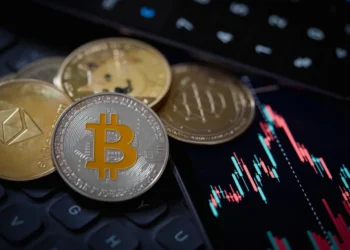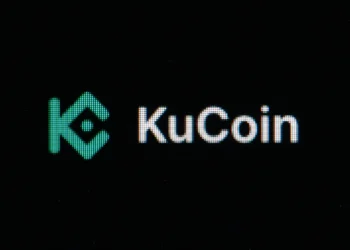Quick Breakdown:
- Vietnam’s crypto market sees $100B in annual trading volume from 17M users, mostly on offshore exchanges like Binance and Bybit.
- New Law on Digital Technology Industry requires exchanges to obtain domestic licenses and offer Vietnamese dong trading by Jan. 1, 2026.
- State-backed NDAChain blockchain launched to enable secure payments, tokenized assets, and integration with banks and national financial systems.
Vietnam is preparing to bring its booming crypto sector under domestic oversight, aiming to capture tax revenue and integrate digital assets into the national financial system. A new report, Shaping the Vietnamese Crypto Asset Market, released September 20 by VinaCapital Fund Management, reveals that 17 million Vietnamese have traded crypto assets, generating an estimated annual volume exceeding $100 billion. Yet nearly all trading still flows through offshore exchanges such as Binance and Bybit.
The Vietnamese government has rolled out a five-year pilot program aimed at bringing over US$100 billion in crypto asset trading activity under official regulation.
Read more: https://t.co/YBgJOiuuaq pic.twitter.com/0t6UsksrkO
— Tuoi Tre News (@VietNewsGateway) September 23, 2025
National blockchain platform to anchor digital economy
The government’s strategy centers on Resolution 05 and the recently passed Law on Digital Technology Industry, which formally recognizes digital assets and requires exchanges to obtain domestic licenses. Beginning January 1, 2026, licenced platforms must provide direct Vietnamese dong trading gateways. At the same time, Hanoi has launched NDAChain, a state-backed blockchain platform designed to support secure financial transactions, digital payments, and tokenization of real-world assets.
According to VinaCapital’s director of macroeconomic analysis Michael Kokalari, these measures pursue three goals: legalizing and taxing crypto transactions, integrating digital assets with the domestic banking system, and strengthening investor protections. NDAChain will enable regulated issuance and trading of tokenized instruments such as bonds, fund certificates, commercial invoices, and carbon credits, all backed by bank-linked infrastructure and anti-money laundering safeguards.
Pathway for exchanges and institutional adoption
Licensed crypto exchanges will connect directly with domestic banks and electronic payment systems, gaining access to transaction fees and user data now captured by overseas platforms. Early entrants stand to benefit as regulated stablecoins allow 24/7 low-cost transfers and broaden retail and institutional participation. VinaCapital notes that the regulatory shift opens doors for Bitcoin and diversified digital asset funds to serve insurers, pension funds, and other large investors, positioning Vietnam to transform its crypto trading boom into a new driver of economic growth.
Meanwhile, South Korea is advancing plans to share cryptocurrency transaction data with tax authorities worldwide, with the Ministry of Economy and Finance confirming on September 1 that detailed rules for implementing the OECD’s Crypto-Asset Reporting Framework (CARF) are forthcoming.
If you would like to read more articles like this, visit DeFi Planet and follow us on Twitter, LinkedIn, Facebook, Instagram, and CoinMarketCap Community.
Take control of your crypto portfolio with MARKETS PRO, DeFi Planet’s suite of analytics tools.”
s suite of analytics tools.”




















